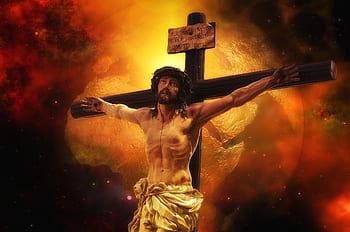
Antony moved secretly through the city. He was not exactly dressed like the Jews in the city, but he was fairly certain no one would recognize him as a Roman Centurion. Still, he was looking in every direction to avoid anyone he might know as he made his way to the home of a man named John. John already knew he was a Centurion. Antony would have to be wary of him. He was a leader in the group sometimes calling itself The Way. The rapid growth of the followers of Jesus had surprised everyone, Pilate not the least. The Tribune assumed they were dangerous. He suspected that they were raising an army. Antony did not know one way or the other.
He was now in the shabby neighborhood where John had sent word that he was living. He had no idea how to find the house. Suddenly he noticed several people approaching him. He gripped the sword concealed under his hooded cloak. They stopped about ten paces from him. He was surprised when a woman in the group stepped forward to speak.
“Are you Antonio Longinus?”
“How did you recognize me?” He demanded.
She said, “John sent us to find you. And you seem to be the only one hiding your identity.” Antony had begun to perspire. He was relieved to throw back his hood and feel the breeze on his face.
“Call me Antony. I need to see this man called John.”
“We are all followers of Jesus. My name is Mary Magdalene. John sent us to bring you to his home.” The woman led the group. Several men surrounded Antony as they walked. They may have been trying to shield him from view, but they made him uncomfortable. Twice they changed streets. If he had not been met he would never have found the house. They stopped at a small cottage. It appeared to be well kept. The other men remained outside as Mary brought him into the house. John welcomed him and led him to a table with chairs. Many Syrian homes had low tables or mats, and the people sat on pillows rather than chairs. An older woman sat near the table obviously to listen to them. Wine was poured for both of them. When they had both sipped a little, Antony began the conversation.
“I have felt some urgency to speak with you. I know you are one of the leaders of this new Jewish cult. My men have been at your meetings on the temple grounds. They say that you are quite resolute that this Jesus who was crucified is alive. Is that the case?”
“It is indeed,” John said. “I was one of those who spent time with Him after He arose.”
“My fellow officers think that is ridiculous.”
“If that is the case,” John said, “Why have you come to see me today?”
Antony asked, “Do you know who I am?” John did not respond. “I am aware that what I tell you next may end my chances of learning what I am desperate to know. But you will not understand if I do not tell you everything.” John nodded to him. Antony continued. “I was there when Jesus was crucified. I was the Centurion in charge.” Antony paused to consider John’s reaction. He could make little out of his expression. “I have seen many people die in war. I could not begin to know how many. And as a Roman officer I have participated in over a hundred crucifixions. No one ever died like that man. I cannot recount all the ways his death was different including the darkness and the earthquake. Aside from those things his words and his manor were not like anything I had ever imagined.
“I had sent men to listen every time he was in Jerusalem. I even went myself when I could. I knew that you believed that there is only one god long before I came to Roman Syria. You may be aware that Jesus healed the servant of a Roman officer in Capernaum. I spoke with him and listened to what he had come to believe. I thought about what he said and I began to wonder if it were not true. I knew that Jesus talked about coming from his father. I understood that he was talking about your god, the god who made the earth and the stars. But when Jesus prayed on the cross, I got the feeling, I suppose I knew, he was really talking to God. The men with me were affected in the same way. I admitted then that only one who came from God could die like he did. I could not forget it even though I knew he was dead.
I did not know what to think when a squadron of guards returned from his tomb terrified but unwilling to say what had happened to them. Later, representatives from the Jewish council came to vouch for the soldiers saying they had not really gone to sleep, but they needed them to say that. Why would they need them to say that unless they knew that something they wanted to hide had taken place at the tomb? I continued to wrestle with these things not knowing what to do about it. I have heard that you say he is somehow alive again. And I thought if he was a god, or as he seemed to be saying, the Son of God. . .” Antony fell silent.
John said, “You seem to have concluded much on your own. What do you need me to tell you?”
Antony said, “I don’t know what to ask. I suppose I should start with something I think Jesus taught that made little sense to me when I heard it. I need to know about forgiveness. I need to know if I could ever be forgiven for crucifying the Son of God.”
John said, “I think you need to know why Jesus died.” Antony frowned but did not speak. John continued, “You mentioned that you heard Jesus pray from the cross. Do you remember what He prayed?”
“One of my men speaks enough Aramaic that he told me the meaning of the loudest words he prayed. He said they meant something like, ‘My God, why have you forsaken me?’ Antony trembled at these words.
John said, “That is important. I will come back to that in a minute. Can you remember anything else He prayed?” Antony thought a little longer and shrugged as much to shake off some of the emotion that threatened to drown him as it was to say that he did not know. John said, “You said you knew Jesus taught about forgiveness. Do you remember anything He prayed about forgiveness while He was on the cross?”
Antony thought for a moment and said, “‘Father, forgive them.’ When he said that I think he looked at the men mocking him. He certainly looked down at me.”
John said, “I think you know or at least suspect that I was there that day. When Jesus said that, He also looked at me.”
“At you? But you were not mocking him. You did not put him on that cross. His blood could not have spilled on your hands and tunic.”
John continued, “Jesus taught us about our need for forgiveness. One of those times He said to the crowd, ‘I will soon go to Him who sent me, and you will die in your sins because where I go you cannot come.’ Jesus taught us that we are under a greater domination than that of Rome. All people are slaves to sin.”
“Antony said, “I am not sure I know what you mean.”
“I mean that sin has its grip on your heart. You have sinned all your life and cannot keep from sinning. You not only need forgiveness for crucifying Jesus, but for all the things you have done that were wrong.”
Antony was silent until he could control his emotions. Then he said, “I know very little about the laws of your people and your god. You seem to believe that everything I do from working on Saturn’s day to missing your feasts are sin. I am sure some think it is a sin to be a Roman. Your god will surely not condemn me for all those things.”
John nodded. “I understand. But you do believe that some things are right and some are wrong, don’t you? I suspect you know there is such a thing as evil in this world.”
“I suppose I believe that,” Antony said.
“And you have done things that you knew were wrong.”
Antony nodded. “You are right, though I never thought of those things until we crucified Jesus. Now I have trouble sleeping.”
John paused a moment and then said, “What most sticks in your mind about being near Jesus. How did He make you feel?”
Antony said, “That is a difficult question. At the cross or from before?
“Either,” John said.
“As we were crucifying him, I guess I felt guilty even though I was doing my duty.”
“What made you feel guilty?”
“I was thinking, ‘This man could not die like he did if he had ever done anything wrong.’ I think the people in the crowd must have felt that too, even as they mocked him.”
John said, “As you watched Him die with His clothing, His dignity and eventually his life stripped away, you couldn’t help seeing that His holiness remained. Do you know what that word means?”
“I know a little of how the Greek religions use the word.”
John explained, “Our Scriptures teach that holiness is absolute righteousness. This means more than not doing evil. Jesus said, ‘My Father is with me because I always do what pleases Him.’ But God could not be with us. None of us is holy. And if we are not forgiven, we will die in our sins and stand before a holy God. Jesus who always did what pleases God, was crucified in our place. He was rejected by God for us. He died to pay the penalty for our sins. And He rose from the grave to reconcile us to Him forever.”
“And that includes a Roman soldier?” Antony asked.
“That includes all of us. Those of us who recognize that Jesus was God with us, will not die in our sins.”
Antony said, “I need to think about this. I don’t think you know how much believing this will cost me.”
John said, “I think you have enough to digest from our talk. But I would be willing to meet with you and talk more about Jesus. I know you still have many questions.”
“That will not be possible. I am in danger from this meeting. If we began to meet regularly I would probably be put to death as a traitor. And besides, I am being transferred. I don’t even know where I will be sent.”
Before Antony could dawn his disguise and leave, John said, “You were able to understand all this about Jesus because God has been speaking to you. You came here because He drew you. Jesus told us He is the light of the world. Believing in Him begins to make sense of everything. Wherever you go you can ask God to speak to you. He will teach you. Before long many of us will be sent to places all over the empire. You will hear of us again.
The seed of his story came from John 8:28.
Lord Jesus, forgive us and transform us in Your holy presence.
http://thinkinginthespirit.blogspot.com/
http://theanchorofthesoul.blogspot.com/
http://watchinginprayer.blogspot.com/
http://writingprayerfully.blogspot.com/
Website
http://daveswatch.com/
YouTube
https://goo.gl/PyzU
Amazon Author Central page.
